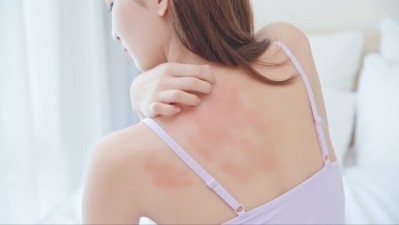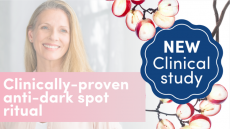Probiotical study links synbiotic with improvements in skin conditions

A team of independent researchers in Italy observed statistically significant improvements in common symptoms such as itching, papules and redness, leading to less picking and scratching following probiotic and prebiotic intake.
Study details
The 12-week study used a finished product from Probiotical, developed with three of its unique probiotical bacteria strains: Bifidobacterium animalis subsp. lactis BS01, Lactiplantibacillus plantarum LP14 and Lacticaseibacillus rhamnosus LR05, along with prebiotic fructo-oligosaccharides (FOS) and riboflavin. The synbiotic product was administered orally to 144 patients with mild atopic dermatitis and did not include a placebo control group.
Clinical assessments using the Scoring Atopic Dermatitis (SCORAD), Eczema Area and Severity Index (EASI) and Three-Item Severity (TIS) score were conducted for 12 weeks. Researchers observed that both itching (pruritus) and AD-related lesions (redness known as erythema, edema/papules, excoriation which is excessive picking or scratching) exhibited significant clinical and statistical improvement after 12 weeks of exclusive probiotic and prebiotic use. For atopic dermatitis sufferers, itching can be a debilitating symptom of atopic dermatitis.
"These preliminary results suggest a potential link between the skin-gut microbiome and support the rationale for using specific probiotics and prebiotics in mild AD, even for maintenance, to reduce flares," the researchers noted. "This may be mediated in part by improvement in barrier function in the gut."
The researchers acknowledged limitations, such as the absence of baseline and post-intervention monitoring of the cutaneous microbiome and a placebo control group.
The role of the specific strains and prebiotics
"In line with existing literature, AD patients often experience gut dysbiosis, leading to instability in the microbiome and creating an environment conducive to the introduction of orally ingested bacteria, as seen in this study," the authors wrote. "This phenomenon potentially explains the clinical outcomes observed in our study after oral supplementation with Lactiplantibacillus plantarum LP14 (DSM 33401), Bifidobacterium animalis subsp. lactis BS01 (LMG P-21384), and Lacticaseibacillus rhamnosus LR05 (DSM 19739)."
Probiotical Consultant Anthony L. Almada, MSc, FISSN, said that discerning a mechanism(s) of action through a presumed gut-skin axis is challenging.
"Prior studies in persons living with atopic dermatitis, employing two of the strains featured in this recent study (along with FOS), found similar results after four months," he said. "The trio of strains in our most recent study exhibit a combined effect upon anti-inflammatory cytokine (IL-10) production, in vitro. This, coupled with possible improvements in gut barrier integrity and modulation of the trafficking of Regulatory T cells, may collectively ‘soften’ the itch drive and inflammation."
Almada explained that because the prebiotic in this study is a classical selective substrate and promoter of the growth of Bifidobacteria in the gut, "the inclusion of FOS in a synbiotic for adults living with atopic dermatitis seems rational and evidence-guided."
The gut-skin market and consumer awareness
During an interview at Expo West, Probiotical CEO Vera Mogna said that probiotics for skin health is an up-and-coming category with tremendous potential, telling NutraIngredients-USA that she anticipates the category to accelerate quickly.
While most consumer and market insights suggest that gut health is the primary driver of probiotic and synbiotic supplementation, Almada said the emergence of skin-focused probiotics and synbiotics with multiple benefits including skin and the intuitive awareness many consumers have in relation to their skin health is expanding.
Bidirectional beauty
Skincare systems that include ingestibles as well as topicals are gaining popularity as a means to fight anti-aging from all angles.
"We are taking a truly inside and outside approach to skin health with our probiotic strains and blends that exhibit potent and enduring effects upon atopic dermatitis, in both pediatric and adult populations, and in adult acne, and our SkinBac postbiotics for topical applications, respectively," Almada said.
He added that Probiotical is currently developing a systematic clinical research program that expands on its evidence base and may explore the combined effects of an inner and outer approach to skin health and function.
Source: Medicina
Volume 59 Issue 12 doi:10.3390/medicina59122080
“Probiotics and Prebiotics Orally Assumed as Disease Modifiers for Stable Mild Atopic Dermatitis: An Italian Real-Life, Multicenter, Retrospective, Observational Study”
Authors: D Colombo et al.
















